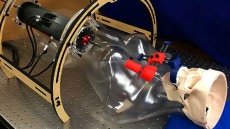Developing a healthy sleeping habit could be a life saviour as researchers have found that insomnia significantly increases risk of death caused by motor vehicle crashes and other unintentional fatal injuries.
People with all symptoms of insomnia were 2.8 times more likely to die from a fatal injury than those with no insomnia symptoms, even after adjusting for potential confounders such as alcohol consumption and daily use of sleep medication.
"Our results suggest that a large proportion of unintentional fatal injuries and fatal motor vehicle injuries could have been prevented in the absence of insomnia," said lead author Lars Laugsand from Norwegian University of Science and Technology in Trondheim.
Risk of unintentional fatal injury increases in a dose-dependent manner with the number of insomnia symptoms present, the findings showed.
Among the insomnia symptoms, difficulty falling asleep appeared to have the strongest and most robust association with fatal injuries.
People who almost always had difficulty falling asleep were more than two times more likely to die from a motor vehicle injury and over 1.5 times more likely to die from any fatal injury than people who never had trouble initiating sleep, the findings showed.
Further analysis found that self-reported difficulty in falling asleep contributed to 34 percent of motor vehicle deaths and eight percent of all unintentional fatal injuries, which could have been prevented in the absence of insomnia.
"Increasing public health awareness about insomnia and identifying and treating people with insomnia may be important in preventing unintentional fatal injuries," Laugsand added.
The study involved analysis of population-based survey data from 54,399 men and women between 20 and 89 years of age.
The study appeared in the journal Sleep.





